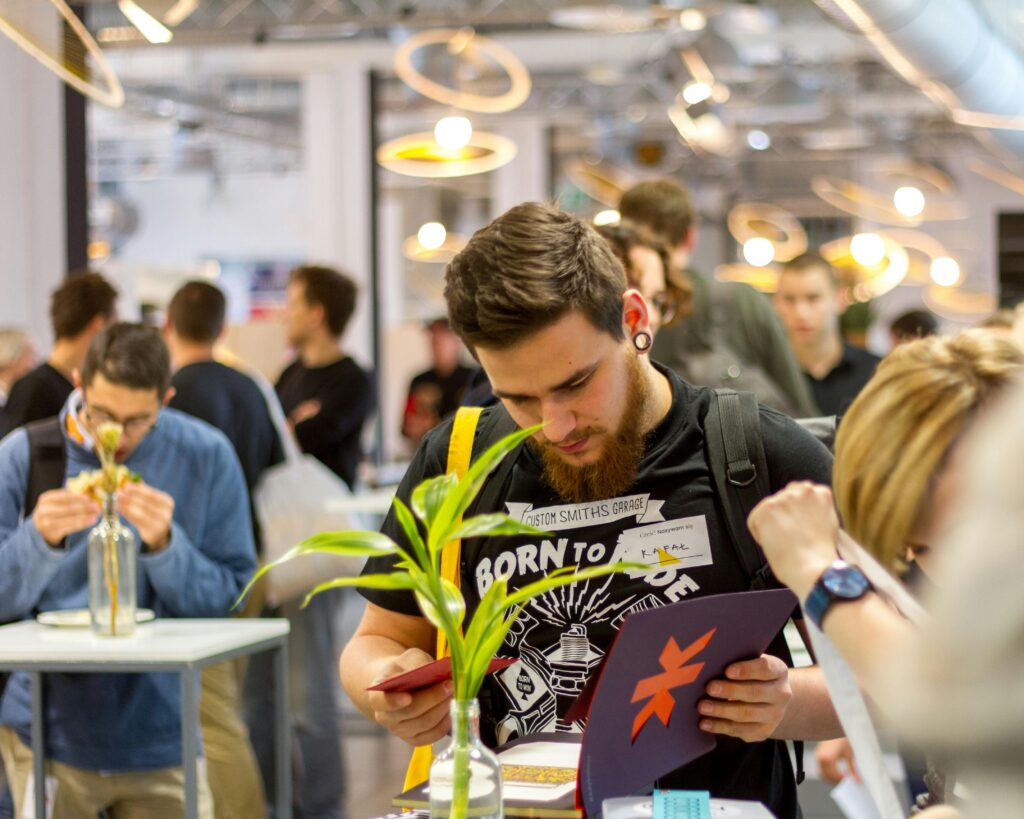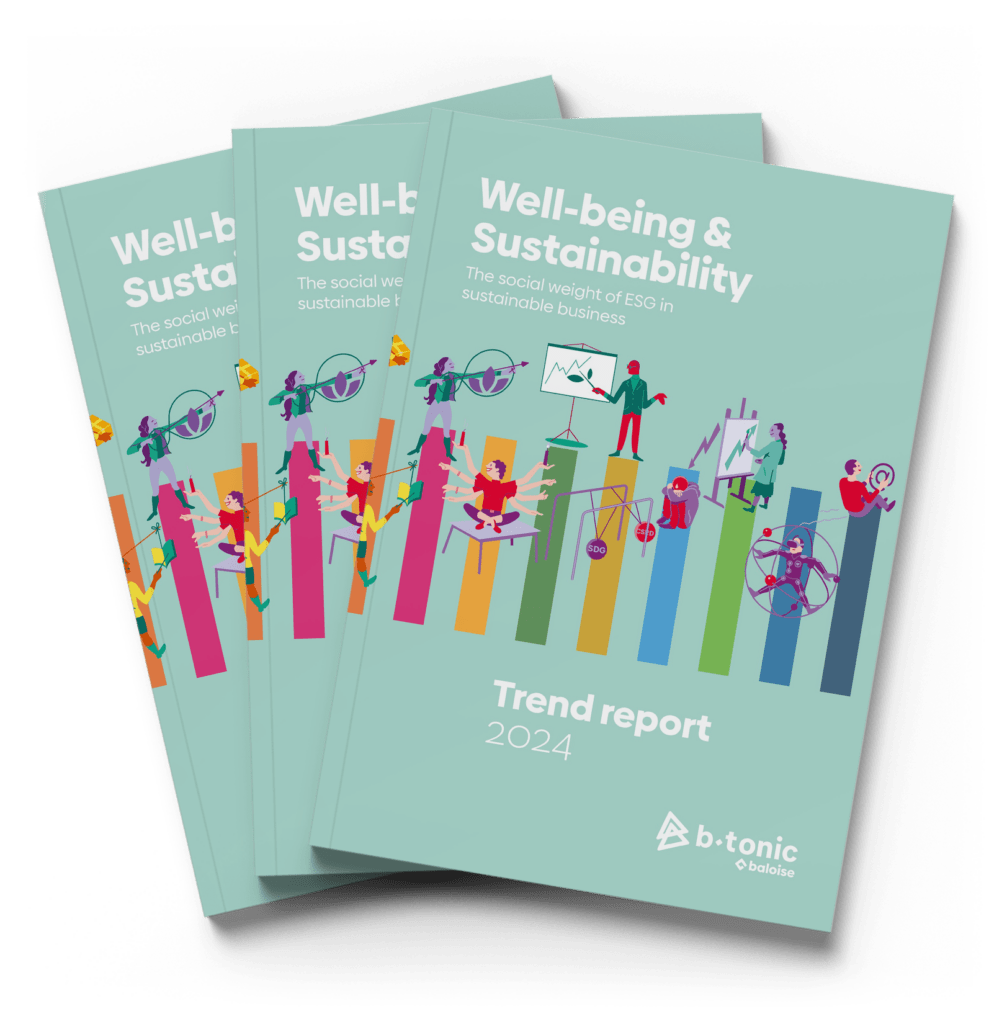A study commissioned by B-Tonic shows that the pandemic has significantly sharpened employees’ and companies’ focus on well-being at work. The remarkable results and important trends resulting from this wrote down trendwatcher Herman Konings in the Trend report 2022 ‘Well-being & Connectivity’. A must-read for any professional.
| Striking figures (IPSOS survey 1000 PARTICIPANTS in Belgium)
The pandemic increased our focus on well-being at work: But there is also a downside: |
COVID-19 has had an unprecedented impact on the human psyche and society. While the lockdowns paralysed social life, professional life gained digital momentum. The pandemic has digitised society and the economy with turbo power. Teleworking became the norm and Teams replaced the chat at the coffee machine.
Now that most of the dust of change has settled, it is time to take a look at the future. What lasting social impact is the corona crisis going to have on the way we look at and deal with work? Has the relationship between employee and employer changed? And above all, what optimal interpretation of our working day do we envision for ourselves?
Trend report
In the Trend report 2022, we define four so-called ‘megatrends’, which are civilising processes that indicate the kind of world we live in. In crises like wars or pandemics, these civilising processes experience a steroid injection of sorts. The unreal experience of a locked up society leaves deep marks, but also offers opportunities to open our minds to new insights, attitudes, behaviours and challenges.

Health
Health stands out as the number one priority in our society hit by the worst post-war pandemic. COVID-19 thus cuts deeply into this civilisation process, but at the same time also accelerates it in the right direction. A whopping 22.2% of respondents said they exercise more today than before the lockdowns.
 Maintenance or sustainability
Maintenance or sustainability
The civilisation process volition extends to every area of our daily lives. Whether it is personal purchasing decisions, sense of social and moral responsibility or business strategy, it is increasingly becoming one of the most powerful drivers of our time, not in the least because of technological innovations. For example, 35.4% of employees see their job satisfaction increasing thanks to teleworking.

Fluid identity
Fluid identity is created when innovation beats tradition. Identity loses its destiny. The target group loses its recognisability. The trend to change gender roles and break stereotypes of gender, origin, age or ideology is leading to radical changes in both the market and society. Young people today are abandoning the old we-they scheme, aspiring to a repertoire of identities and creating a new culture of pluralism.

Connection
The crisis has fuelled a sense of global connectedness. During the lockdowns, we were all in the same boat, sharing the same fears, insecurities and doubts. Digital communication technologies and virtual networks are fundamentally changing our lives, leading to new lifestyles and behavioural patterns. 45% of employees want more attention to both mental and physical health in the workplace.
 The company of the future
The company of the future
The pandemic brought questions of mental health into the public eye, with health and well-being becoming a higher priority in the workplace. As companies look to introduce those new initiatives and wellness benefits, they need to take into account the new challenges facing the workplace today. Companies should think carefully and take advice on how to integrate well-being tools into their daily operations to support the different needs of employees. Flexible working hours (including weekends) and long-term remote working are two examples but the choice and design of the office environment will also become crucial as employees will use their workplace mainly as a meeting place.
The research
The survey was commissioned by B-Tonic and conducted by the Belgian affiliate of market research firm IPSOS between 5 and 8 November 2021. A representative sample of 1,087 Belgians were asked a total of 10 questions about health and wellbeing at work. In the end, 725 respondents could be identified as relevant and thus useful for the study.




